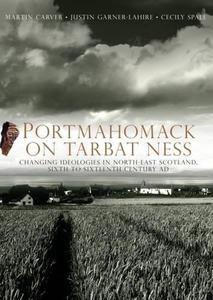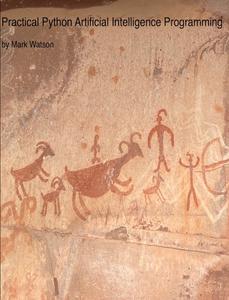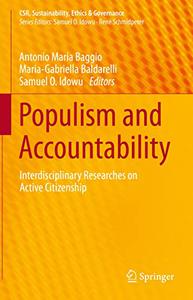 Portmahomack on Tarbat Ness: Changing Ideologies in North-East Scotland, Sixth to Sixteenth Century AD By Martin Carver, Justin Garner-Lahire, Cecily Spall
Portmahomack on Tarbat Ness: Changing Ideologies in North-East Scotland, Sixth to Sixteenth Century AD By Martin Carver, Justin Garner-Lahire, Cecily Spall2016 | 554 Pages | ISBN: 1908332093 | PDF | 36 MB
Drawing on contributions to the field investigation and record by Fred Geddes, Jill Harden, Madeleine Hummler, Martin Jones, Annette Roe and Nicky Toop; and to the post-excavation analysis from Steve Allen, Steve Ashby, Mark Blackburn, Lawrence Butler, Ewan Campbell, Shirley Curtis-Summers, Claire Ellis, Ian Freestone, Allan Hall, Derek Hall, Mark Hall, Derek Hamilton, Mhairi Hastie, Andy Heald, George Haggarty, Tim Holden, Matilda Holmes, Nick Holmes, Fraser Hunter, Richard Jackson, Harry Kenward, Sarah King, Monica Maleszka-Ritchie, Kellie Meyer, Janet Montgomery, Catherine Mortimer, Anthony Newton, James Peake, Nigel Ruckley, Krish Seetah, Clare Thomas, Nicky Toop, Lauren Walther, Becca Walters, Penelope Walton Rogers and Hugh Willmott.Portmahomack on the Tarbat peninsula overlooking the Dornoch Firth is a fishing village with a 1,500-year-old history. In the sixth and seventh century it was a high-ranking centre with monumental cist burials and links to the equestrian class in England. In the eighth century it was a monastery, creating manuscripts and making church vessels and a stunning repertoire of carved stone monuments, its monks looking to Ireland, western Scotland and Northern England for their intellectual alliances. Around 800 AD the monastery came to an end following a Viking raid, but swiftly revived as a manufacturing and trading centre, now serving the protagonists of the Norse-Scottish wars. By the eleventh century the site was abandoned, but was remembered again in the early twelfth century when it became the parish church of St Colman. In the later middle ages it experienced an upsurge of activity with fishermen and metalsmiths settling beside an enlarged community church. When the Reformation arrived at Portmahomack about 1600, the village moved to the harbour and the old church of St Colman remained on its own, acting for another four hundred years as a weathervane of local society and its beliefs. Rediscovered by archaeologists in the 1980s, from 1994 to 2007 the site at Portmahomack saw one of the largest research excavations to have taken place in Scotland.



![S.T.A.L.K.E.R. 2 / STALKER 2: Heart of Chornobyl - Ultimate Edition (2024) [+UPDATE 23.12.2024 - v1.1.3] ElAmigos / Polska wersja językowa](https://i.postimg.cc/Zqd8RWGY/UZG8PBE.jpg)



















































![David Gilmour - Luck and Strange (2024) [FLAC]](https://i.imgur.com/everaBc.jpeg)
![Męskie Granie Orkiestra - Męskie Granie 2024 (2024) [FLAC]](https://i.imgur.com/FAyOxrM.jpeg)
![The Rolling Stones - Hackney Diamonds (2023) [FLAC]](https://i.imgur.com/wCkyyUN.jpg)
![Lady Gaga - Harlequin (2024) [FLAC]](https://i.imgur.com/dcgIA8D.jpeg)
![Natalia Kukulska - Dobrostan (2024) [FLAC]](https://i.imgur.com/bdljG3O.jpeg)
![Kaśka Sochacka - Ta druga (2024) [FLAC]](https://i.imgur.com/hORQKvn.jpeg)
![Kuba Sienkiewicz - Pani Bóg (2024) [FLAC]](https://i.imgur.com/qijCx8Z.jpeg)
![Lanberry - Heca (2024) [FLAC]](https://i.imgur.com/8P7QfeR.jpeg)
![Sara James - PLAYHOUSE (2024) [FLAC]](https://i.imgur.com/m4f8OKg.jpeg)
![Grzegorz Hyży - EPILOG (2024) [FLAC]](https://i.imgur.com/8DA2sBr.jpeg)
![Myslovitz - WIECZORAMI CHŁOPCY WYCHODZĄ NA ULICE (2024) [FLAC]](https://i.imgur.com/l9mMtIG.jpeg)
![Krzysztof Zalewski - ZGŁOWY (2024) [FLAC]](https://i.imgur.com/vh48RAc.jpeg)
![Krzysztof Cugowski - Wiek to tylko liczba (2024) [FLAC]](https://i.imgur.com/SBzgqe2.jpeg)
![Nosowska - Kasia i Błażej (2024) [FLAC]](https://i.imgur.com/mObvVXQ.jpeg)
![sanah - Pianinkowe Kaprysy (2024) [FLAC]](https://i.imgur.com/pVjjPAa.jpeg)
![Kwiat Jabłoni - Pokaz slajdów (2023) [FLAC]](https://i.imgur.com/diERHfZ.jpg)
![Robert Cichy - Spacer po Warszawie (2024) [FLAC]](https://i.imgur.com/ixleU9o.jpeg)
![Viki Gabor - Terminal 3 (2024) [FLAC]](https://i.imgur.com/Q1KCnDs.jpeg)
![Sanah - Kaprysy (2024) [FLAC]](https://i.imgur.com/71OZm4h.jpeg)
![Męskie Granie Orkiestra - Męskie Granie 2023 (2023) [FLAC]](https://i.imgur.com/U4YHo8d.jpg)




